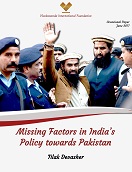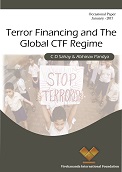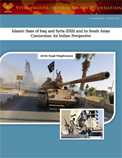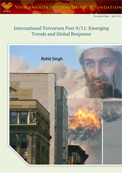Many in India often wonder why don’t we have better relations with Pakistan and how long will we keep on bickering and fighting. Many also point to the perils of a miscalculation given that the two countries are nuclear weapons states. The most famous articulation has, of course, been that the bilateral dialogue should be ‘uninterrupted and uninterruptible.
How do Terrorists Finance their Operations and Supply their Funds?
A Brief Background to the Evolution of ISIS: Today, one of the most serious threats that have engulfed a large portion of the Middle East is the emergence of the Sunni Muslim extremist group, infamously known as the Islamic State of Iraq and Syria (ISIS), or Islamic State of Iraq and Levant (ISIL). After capturing a sizeable territory in Iraq and Syria, the group changed its name to Islamic State (IS).
Introduction September 11, 2001 was a watershed in the manner in which the world acknowledged and responded to terrorism. The monstrosity of the multiple attacks which killed nearly 3,000 people in one planned strike brought universal condemnation for terror acts and the community of nations got together to formulate a collective response, in what came to be known as the ‘Global War on Terrorism’ (GWOT).
Kautilya wrote in the Arthashastra that a state could be at risk from four different kinds of threats – internal, external, externally-aided internal and internally-aided external. The internal security scenario in India has a mix of all the shades of threats visualized by Kautilya. It is indeed a dismal scenario. Click here to read full Paper





